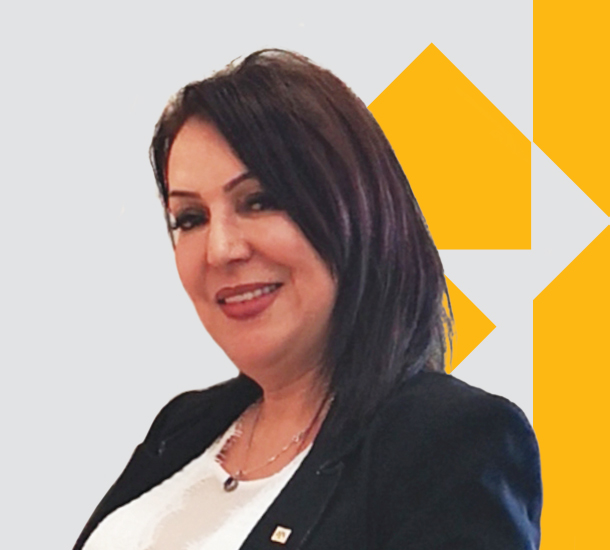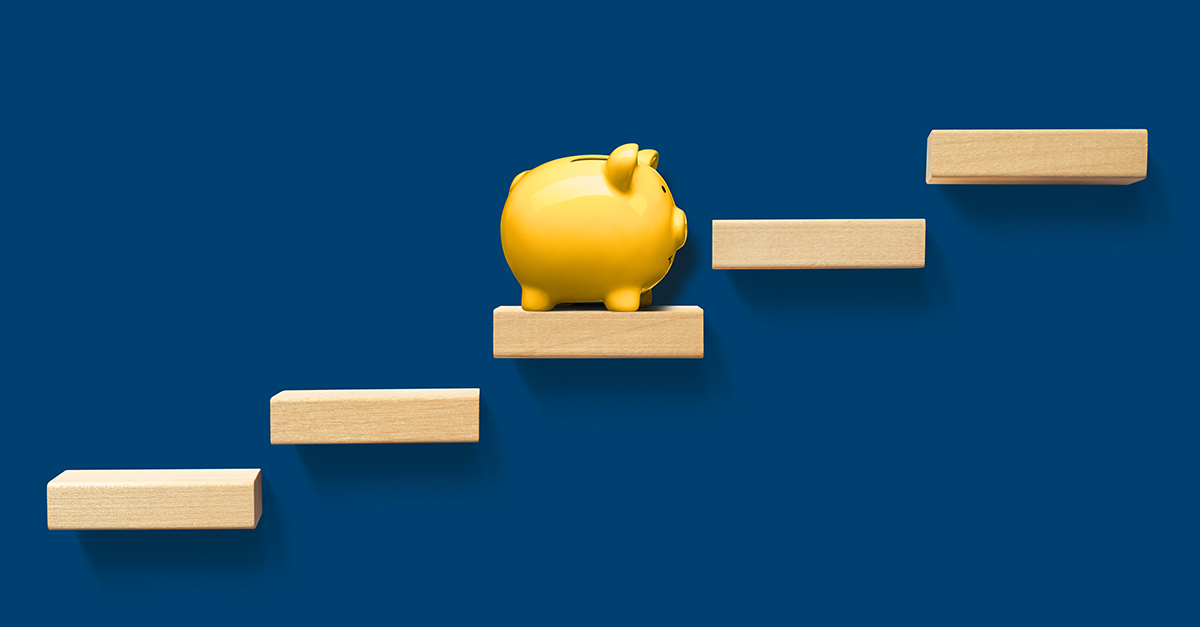My advice • February 10, 2020
modified on February 26, 2020
Financial advice interview
The importance of a good retirement strategy

 Saadia Bahsis
Saadia BahsisAdvisor - Montreal North
- Saadia, as an advisor, can you tell us what the steps are for establishing a retirement strategy?
- The first step is to meet with your advisor and complete your financial health assessment with them. Just like when you’re planning a trip, you first have to know where you’re going, where you’re leaving from, and making sure you pick the right vehicle. The financial health assessment helps you set and prioritize your goals, as well as find out whether your current financial situation is stable and will allow you to achieve your goals. The second step, the Retirement projection, diagnoses whether or not you can reach your retirement goals, based on your foreseeable retirement income and current financial situation. Using this diagnosis, the third step consists in choosing the best investment options for you, such as an RRSP, a TFSA or non-registered accounts for clients with a greater capacity for saving.
- What is the best way to plan for retirement?
- You first need an action plan. It’s worth noting that only 45% of Quebecers have an overall financial plan and review it at least once a year. That’s why I would say that it starts with a Retirement projection, the first step toward a well-planned retirement. This exercise helps you think about your overall retirement goals and plans. It also determines the amounts you need and how to invest them so you can retire comfortably and achieve your retirement goals. You have to consider your sources of income–such as your investments, employer pension funds and public plans–but also your current financial situation, retirement age and the lifestyle you would like to maintain while retired. The Retirement projection enables you to see whether reality matches your goals, as well as set up a tailored plan and strategies you can start implementing right away.
- What basic advice do you give your clients when the topic of retirement comes up?
- My advice depends on the client’s age, ability to save, needs and goals. I use their goals to see the difference between the amounts they save and what they need based on their current age and their retirement age. The Retirement projection is a key tool. I also encourage my clients to prepare their retirement budgets so they have an accurate picture of their future income and expenses.
- At what age should we start planning for retirement?
- Ideally, you should start planning as soon as you start working and have a source of income. If you only start saving at 35 or 40, then you have to determine the retirement income you want and invest some of your income as soon as possible. The sooner you start, the more your money works for you. The later you start, the harder you will have to work to close that gap. Sooner is better when it comes to saving for retirement.
- Is there an overall amount we should aim for?
- No, the amount varies from client to client. It depends on a number of factors, such as age (investment horizon), saving ability (earned income), the client’s plans and goals (retirement income target and desired lifestyle). In some cases, adjustments need to be made by offering the client solutions and tailoring their action plan. For example, delaying retirement or reviewing their retirement income.
- What do you think is the best way to achieve your retirement goals?
- By having discipline, sticking to the plan and regularly reviewing it. The Pre-Authorized Contribution Plan, or PAC, is a great way to do that. It’s a simple and flexible way to save, as the amount you choose is automatically withdrawn from your bank account, based on the frequency, and invested in mutual funds.
- Can you explain the benefits of a retirement strategy?
- Through better preparation, we can reduce effect of surprises that occur throughout retirement and the risk of finding ourselves short on resources. Contributing to an RRSP is fiscally advantageous, as the amount invested in it reduces your taxable income, resulting in tax savings, which in some cases may qualify you for a tax refund (or return). Whether you are 25, 40 or 55, a game plan will help you get the retirement you want. And finally, planning well will give you peace of mind and financial independence to shield you from unforeseen events.
A financial health assessment is the first step to better manage your personal finances. It helps paint a clear picture of your financial situation, define and prioritize your objectives, and suggest what you should do. Take your first step now and meet with your advisor.
+ Legal Notices
New investment accounts are offered by LBC Financial Services Inc. (LBCFS). Mutual funds are distributed by LBCFS. The Financial Planning service is offered by LBCFS. LBCFS is a wholly-owned subsidiary of Laurentian Bank and a legal entity distinct from Laurentian Bank and Mackenzie Investments. Mutual funds offered by LBCFS are part of the Laurentian Bank Group of Funds managed by Mackenzie Investments. A Laurentian Bank advisor is also a licensed LBCFS Mutual Fund Representative.
Commissions, trailing commissions, management fees and other expenses all may be associated with mutual fund investments. Nothing guarantees that the fund will maintain its net asset value per unit at a constant amount or that the full amount of your investment in the fund will be returned to you. Mutual fund values change frequently, and past performance may not be repeated. Please read the simplified prospectus or Fund Facts before investing in mutual funds.
The articles on this website are for information purposes only. They do not create any legal or contractual obligation for Laurentian Bank and its subsidiaries.
These articles do not constitute financial, accounting, legal or tax-related advice and should not be used for such purposes. Laurentian Bank and its subsidiaries may not be held liable for any damage you may incur as part of such use. Please contact your advisor or any other independent professionals, who will advise you as needed.
The articles may contain hyperlinks leading to external sites that are not managed by LBC. LBC cannot be held liable for the content of such external sites or the damage that may result from their use.
Prior written consent from the Laurentian Bank of Canada is required for any reproduction, retransmission, publication or other use, in whole or in part, of the contents of this site.








